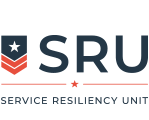By Michael Genovese, M.D., J.D., William Mazur, and Joseph Collins
From the time we’re children — perhaps even before we’ve been introduced to the definition of the word itself — we’re told that we need to be resilient.
If we fall and scrape our knees, we’re told to get up and keep going. If our team falters in a big moment, we’re told to focus on bouncing back. If we fail a test, end a relationship, or lose a job, we’re told to buck up. Try harder. Move on. Something better is just around the corner.
Overcoming adversity requires growth, and sometimes we need to sink before we can swim. There’s a reason those above scenarios sound familiar — we’ve all been there. There isn’t always a playbook to prevent failure.
What happens, though, when the stakes become bigger? When there are real life-or-death matters in play, is it enough for an authority figure to look at the traumatic aftermath of a situation gone wrong and simply string together some clichés about toughness and fortitude? Is it realistic to expect each individual involved in a crisis to have independently built the same internal levels of resiliency as a cumulative response to tragedy?
In some form or another, we’ve been told to be resilient all our lives. But understanding exactly what resilience is, digging deep into how we can most effectively develop it, and figuring out why it’s so essential for first responders requires a more thorough examination.
***
A survey by the American Psychological Association in June found that 72% of Americans said that the summer of 2020 was the lowest point in the nation’s history that they could remember[1]. Three months into a global pandemic at that time and in the midst of a significant wave of civil unrest, that number shouldn’t have been surprising. Nor should the fact that 83% of respondents in the same poll reported that the future of the United States is a source of significant personal stress.
As so many people around the globe began to cope with increased isolation, job loss, and concern over their physical health and that of loved ones during the COVID-19 pandemic, mental health awareness received a huge spike. A Kaiser Family Foundation poll from April found that 45% of American adults felt that their mental health had been negatively impacted due to stress over the coronavirus[2]. The Census Bureau found that more than a third of Americans displayed clinical signs of anxiety, depression, or both since the pandemic began[3]. The already tragic opioid epidemic got worse. The American Medical Association found that more than 35 states have reported an increase in opioid-related deaths during the pandemic, along with ongoing concerns for those who have a mental illness or substance use disorder[4].
It’s a lot of seemingly endless negativity for anyone to process.
Everyone is living it personally. Many of us are also living it professionally.
For doctors, nurses, members of law enforcement, EMTs, SWAT teams, and other first responders, the events of 2020 have brought additional work-related stressors to environments that already contained their share of trauma.
We already know that these professions are at far greater risk for mental health concerns than the average population. More firefighters and police officers die by suicide than in the line of duty[5]. Healthcare workers already had elevated rates of anxiety and depression, and one study of young Chinese doctors on the front lines during the early days of COVID-19 — named the Intern Health Study — found that those numbers had drastically increased[6].
“It’s easy to forget that [healthcare workers] face many of the same additional stresses as the rest of us — concerns about elderly or at-risk family, loss of childcare — while simultaneously managing an increased clinical workload, and all while placing themselves and their families at greater risk of infection,” the study’s director, Elena Frank, Ph.D., told the University of Michigan’s Health Lab in June. “The potential mental health consequences of confronting such enormous pressures cannot be overlooked.”
Frank was referring to medical workers, but she could have been talking about any subset that confronts the fallout of violence and death on a regular basis.
A Stigma That Hasn’t Really Gone Away
As a society, we have made strides to reduce the stigma of seeking treatment for mental health concerns, both among the general population and among first responders. A 2017 University of Phoenix study surveyed more than 2,000 first responders, and 74% said that they have mental health services readily available[7].
But that sense of shame in admitting that you need help isn’t going to disappear completely anytime soon. In that same survey, 69% of first responders said that mental health services are seldom or never utilized within their organization, and 55% said that their supervisor will treat them differently if they bring up mental health concerns.
There’s another interesting statistic in that survey. Fifty-one percent of the respondents said that they had received preexposure training from the leaders of their organization.
Think of it this way. Imagine a daylong hostage standoff that resulted in multiple civilian fatalities and injuries to multiple officers. Two SWAT teams responded. Only one had received consistent, evolving resiliency training through their association.
Which unit is more likely to develop mental health symptoms related to the traumatic fallout of that incident?
“A Growth Mindset Will Lead to Positive Outcomes”
For Chattanooga Police Lt. Heather Williams, resilience isn’t a term to periodically toss out after particularly challenging incidents. It’s a mandatory mindset.
Williams, who has been in law enforcement for 19 years, was selected to be part of the department’s SWAT team in 2006. After rising through the ranks to become only the second female SWAT officer in the department’s history, Williams saw the significance self-care played in surviving as a tactical leader.
So, she took it upon herself to do something about it, crafting policy for and implementing the department’s peer support group for officers who have experienced trauma. The group contains patrol officers and several SWAT members.
“With the life and professional experiences that most SWAT team members have, we need to be more intentional in assisting patrol officers with building resiliency,” Williams said. “Resiliency has to be intentional by all of us. Devoting enough time to teaching officers how to practice a positive mindset and devoting time to teaching officers how to have a growth mindset will lead to positive outcomes. Just like tactical drills, the more we practice having a positive mindset and incorporating officer resiliency into our training, the more it becomes second nature and a positive habit.”
Williams identifies mental, physical, social, and spiritual elements as the key components of resilience.
Williams says that she would like to see the department implement quarterly classes at both the SWAT and patrol levels to ensure that each officer is continually checking in with the mental rigors of their job without letting that resilient mindset slip through the cracks.
That’s especially true during this period of pandemic and civil unrest.
“Resiliency training gives us the tools to handle trauma in a positive manner, which in turn leads to more positive outcomes and growth,” Williams said. “Without it, we can spiral downward into depression, burnout, substance abuse, disciplinary issues, and even suicide. We have a young SWAT team and a young department as a whole. It’s more important than ever to teach the younger officers about resiliency early in their career and how it can help them throughout their career in a positive way.”
Understanding Resilience Starts with Building a Positive Perspective
An umbrella in a downpour will only get you so far. You’re not going to escape without getting a little bit wet.
Resilience is not bulletproof. It does not make a tactical officer or other first responder impervious to the effects of trauma, particularly the cumulative impact many in this profession often collect.
But it makes it far less likely that any singular event will have a backbreaking effect on your mental health. It allows you to build up healthy coping mechanisms through self-awareness and self-management. It helps you learn from adverse experiences, gaining personal strength and self-confidence along with an enhanced sense of gratitude. It gives you an appreciation for your own life, the lives of your colleagues who also stand in harm’s way, and those who support you both personally and professionally.
Resilience lets you prepare for, recover from, and adapt to stress and adversity. But it’s not a badge you collect or an achievement you unlock and carry with you.
You don’t walk into the gym once and walk out with perfectly toned biceps. You don’t step into a college classroom and leave a day later with a Ph.D.
Resilience is a muscle that requires a lot of exercise. At the level in which tactical officers and other first responders experience on-the-job adversity — particularly given the events of 2020 — it’s not too difficult to stay consistent with such a workout.
For Williams and other Chattanooga SWAT operators, the benefits of resilience don’t just apply to the professional domain.
“I’ve been able to apply the resiliency training to my personal life,” Williams said. “Going through officer resiliency training and practicing [those] lessons has allowed me to build a better relationship with my family and close friends, and they have a better understanding of how to assist me when I’m affected by a traumatic or stressful event.”
How Law Enforcement Leaders Can Promote Resilience
Peer-to-peer support groups like the one in Chattanooga are an excellent way for patrol and tactical officers to process traumatic experiences, and they’re becoming more common in agencies throughout the country.
But those are designed more to handle stressful situations in a reactive way. It’s up to leaders of law enforcement agencies to take the proactive approach of recognizing the need to build resiliency from the ground up. So-called emotional battle scars won’t completely disappear even with greater resiliency, but perhaps they’ll require a Band-Aid more often than a complex surgery.
So, where can our leaders look for help?
- IACP: The International Association of Chiefs of Police has developed a law enforcement resilience training program as part of its Preventing Violence Against Law Enforcement Officers and Ensuring Officer Resilience and Survivability (VALOR) initiative. The three-day, interactive training focuses on mind, energy, and connection skills[8]. Agencies that want more comprehensive, regular training can select participants for a train-the-trainer program, where they’ll first learn resilience skills for themselves before becoming certified to teach others using a manualized curriculum.
- FBINAA: The FBI National Academy Associates has worked collaboratively with Acadia Healthcare and Treatment Placement Specialists® over several years to provide train-the-trainer programs that equip law enforcement instructors and leadership with the tools they need to be a resource for first responders who are struggling with behavioral health challenges[9]. The intention of this three-day program is to help public safety leaders reduce the stigma of mental health concerns among first responders by changing the culture.
Choosing one of those programs to begin implementing long-term resilience training should be on any agency’s to-do list, but there are also some simple ways to provide short-term resilience and combat operational stress that any tactical or patrol officer can benefit from.
Here are 10 techniques that can help promote positivity by limiting negativity, much of which has been amplified by the pandemic:
- Self-care. Make this a discipline rather than an indulgence. Getting good sleep and eating healthy can go a long way.
- Mindfulness and meditation. These practices, combined with breathing exercises, can help you stay present in the moment.
- Social media saturation point. Draw boundaries with the 24-hour news cycle, particularly when it involves civil unrest and anti-law enforcement sentiment. Give your negativity sensors a break.
- Take it one day at a time. The pandemic is difficult on everyone. Living day to day and in the moment allows you to limit anxiety.
- Physical distancing, not social distancing. Take advantage of videoconferencing. Stay connected with your inner circle and friends and family you can’t see regularly.
- Develop a new routine. Whether it’s a hobby you’ve been wanting to try or a subject you’d like to learn, take the time to learn a new skill.
- Control what you can. Outrage doesn’t get you very far. Focus your energy on areas where you can make a legitimate difference.
- SLLS (Stop, Look, Listen, Smell). Do this before you have an emotional reaction. Those extra few seconds can save a lot of stress.
- Write down your feelings. Take notes on the environment that provoked certain reactions. You may learn the root cause of some of your frustrations.
- Be grateful. Your life isn’t perfect, but no one’s is. By taking the time to consider what and who you appreciate, you’ll enhance your own sense of gratitude.
Teamwide, organizationwide resilience is an attainable goal for any law enforcement agency. We’re not talking about a personality trait some innately possess and others don’t.
Increasing resilience takes time and commitment from each individual. But from a law enforcement perspective, it must start at the top. A leader sets the tone for what is considered acceptable behavior, for what is tolerated and what is not, and for exactly what an employee can come to expect from their superiors.
For tactical officers, or any first responders who routinely encounter high-risk situations, a healthier mindset coming out of one crisis begets a healthier mindset going into the next. Williams has found that to be especially true since March.
“Because of the resiliency training I received before the COVID-19 pandemic, I have been able to adapt well to new routines and have found more ways to address my mental, physical, social, and spiritual well-being,” Williams said. “If we have a negative outlook or negative mindset, then we may have a negative response. If we have a positive mindset and look for the positive in every situation, then we will have positive reactions and responses.
“It’s all about using what you’ve learned before the crisis happened, accepting the challenge, and adapting or developing new positive ways to live our lives both personally and professionally.”
As we trudge forward in these increasingly chaotic times, resilience is a muscle that will always be worth flexing.
Michael Genovese, M.D., J.D., is a clinical psychiatrist, addiction specialist, and the chief medical officer of Acadia Healthcare. He previously served as the medical director of the Officer Safety and Wellness Committee of the FBI National Academy Associates, helping to equip first responders with the tools they need to withstand, recover, and grow following repeated trauma. He is a diplomate of the American Board of Psychiatry and Neurology and a member of the American Medical Association, the American Psychiatric Association, the American Academy of Addiction Psychiatry, and the American Society of Addiction Medicine.
William “Bill” Mazur is a public safety liaison within Acadia Healthcare’s Treatment Placement Specialists® network. A 25-year law enforcement veteran who retired in 2017 from the Atlantic City (New Jersey) Police Department as deputy chief, he is a graduate of the 256th session of the FBI National Academy and serves as a master instructor with the FBI National Academy Associates’ (FBINAA) Comprehensive Officer Resilience Train-the-Trainer Program℠. He previously served as a member of the FBINAA’s Officer Safety and Wellness Committee.
Joseph “Joe” Collins is a public safety liaison within Acadia Healthcare’s Treatment Placement Specialists® network. A 35-year law enforcement veteran who retired in 2020 from the Two Rivers (Wisconsin) Police Department as chief of police, he is a graduate of the 236th session of the FBI National Academy and was the 2015-2016 president of the Wisconsin FBI National Academy Associates, where he served five years on the executive board. He has previously served as co-chair of the FBINAA’s Officer Safety and Wellness Committee and as a member of the FBINAA Finance Committee. He is a master instructor with the FBINAA’s Comprehensive Officer Resilience Train-the-Trainer Program℠ and serves as a consultant for the U.S. Department of Justice as a subject matter expert in officer resilience.
______
[1] 2020 Stress in America Graphs. (2020, June 1). American Psychological Association. https://www.apa.org/news/press/releases/stress/2020/infographics-june
[2] Panchal, N.; Kamal, R.; Orgera, K.; Cox, C.; Garfield, R.; Hamel, L.; Munana, C.; and Chidambaram, P. (2020, April 21). The Implications of COVID-19 for Mental Health and Substance Use. Kaiser Family Foundation. https://www.kff.org/coronavirus-covid-19/issue-brief/the-implications-of-covid-19-for-mental-health-and-substance-use/
[3] Fowers, A. and Wan, W. (2020, May 26). A Third of Americans Now Show Signs of Clinical Anxiety or Depression, Census Bureau Finds Amid Coronavirus Pandemic. The Washington Post. https://www.washingtonpost.com/health/2020/05/26/americans-with-depression-anxiety-pandemic/?arc404=true
[4] Williams, M. (2020, July 16). Why Are Overdose Deaths Surging Amid COVID-19? The Ohio State University Wexner Medical Center. https://wexnermedical.osu.edu/blog/why-are-overdose-deaths-surging-amid-covid-19
[5] Phillips, L. (2020, July 6). Putting First Responders’ Mental Health on the Front Lines. Counseling Today. https://ct.counseling.org/2020/07/putting-first-responders-mental-health-on-the-front-lines/
[6] Gavin, K. (2020, June 1). Study in Chinese Doctors Shows Mental Toll of Caring in the Time of COVID-19. University of Michigan Health Lab. https://labblog.uofmhealth.org/med-u/study-chinese-doctors-shows-mental-toll-of-caring-time-of-covid-19
[7] Majority of First Responders Face Mental Health Challenges in the Workplace. (2017, April 18). The University of Phoenix First Responders Mental Health Survey. https://www.phoenix.edu/about_us/media-center/news/uopx-releases-first-responder-mental-health-survey-results.html
[8] Law Enforcement Agency and Officer Resilience Training Program. (n.d.). The International Association of Chiefs of Police. https://www.theiacp.org/projects/law-enforcement-agency-and-officer-resilience-training-program
[9] Train-the-Trainer. (n.d.). The FBI National Academy Associates. https://www.fbinaa.org/FBINAA/OSW/Train-The-Trainer/FBINAA/OSW/Train-The-Trainer.aspx






